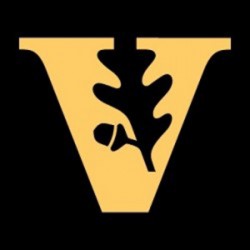 The Vanderbilt School of Medicine seeks to recruit and train interested faculty to serve as small group facilitators for the 2016-17 academic year.
The Vanderbilt School of Medicine seeks to recruit and train interested faculty to serve as small group facilitators for the 2016-17 academic year.
The School of Medicine’s M.D.-degree program curriculum, known as Curriculum 2.0 (or C2.0), is a highly innovative curriculum focused on creating self-directed, lifetime learners. The first year of C2.0, the Foundations of Medical Knowledge phase, incorporates small-group learning activities in addition to more traditional learning experiences. These groups are facilitated by faculty members using a methodology that focuses on empowering learners to take responsibility for their own learning in all aspects of the educational program.
The primary role of facilitators is to guide a small group of students (seven–eight students per group) through experiential learning of basic science concepts. Through these exercises, students also develop critical reasoning skills, such as clinical cases, problems and application of new knowledge from lecture and lab, as well as team-learning skills, such as using Team-Based Learning (TBL) exercises.
The academic year consists of a series of blocks, usually 12 weeks long. Small group facilitators elect to work one or more of those blocks as their schedules permit. Facilitators receive salary compensation of 0.05 FTE per 12-week period. Small group facilitators must commit to a total of about 10 hours per week during the blocks for which they are facilitators (six hours for small-group sessions plus an additional two to four hours per week for ancillary activities).
In addition, a significant and required component of the role is participation in faculty development sessions to learn the small group facilitation method used. Participation in faculty development sessions is required regardless of the number of blocks facilitators choose to lead. Faculty development begins in summer 2016 (compensation will begin at this time) and will consist of two to three two-hour meetings along with additional meetings throughout the year.
Qualifications: All levels of faculty are encouraged to apply. No expertise in a specific field of science or medicine is required. However, the desire to work with students in a collaborative learning environment and the willingness to learn new teaching and assessment skills is critical.
Small group facilitator applications are due May 25, 2016, and should include the following elements in the electronic packet:
- A reflective teaching statement. This brief (one-two paragraph) personal narrative should address how this teaching activity will be a good match with the applicant’s career goals, teaching philosophy and experiences.
- A letter of support from a chair or division chief. This letter should include an explanation of how the facilitator role aligns with the career pathway of the faculty member. It also should indicate how his/her present duties and responsibilities will be appropriately adjusted downward to account for the time required for the facilitator role.
- A current copy of the faculty member’s CV.
Please submit application materials electronically (via email) to Gwen Moore (gwen.moore@vanderbilt.edu) no later than May 25, 2016. Successful applicants will be notified in early June 2016. Questions may be directed to Cathy Pettepher, (cathy.pettepher@vanderbilt.edu).